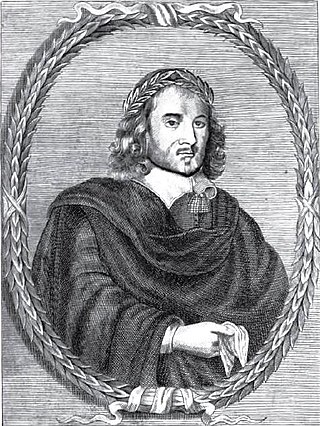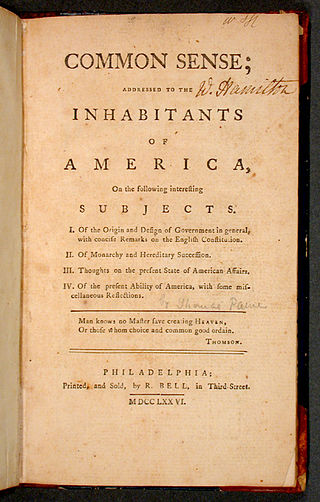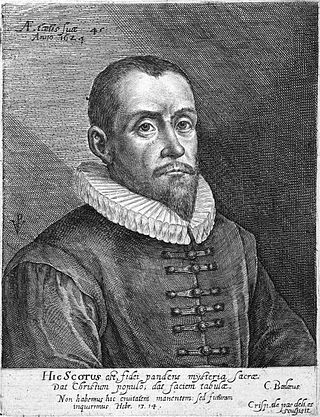
Vox Dei is a political-religious pamphlet by Thomas Scott published in Utrecht in 1623. [1] [2] The pamphlet contains an attack on the Spanish match, and ends by anticipating the triumph of the 1624 parliament.

Vox Dei is a political-religious pamphlet by Thomas Scott published in Utrecht in 1623. [1] [2] The pamphlet contains an attack on the Spanish match, and ends by anticipating the triumph of the 1624 parliament.

Thomas Middleton was an English Jacobean playwright and poet. He, with John Fletcher and Ben Jonson, was among the most successful and prolific of playwrights at work in the Jacobean period, and among the few to gain equal success in comedy and tragedy. He was also a prolific writer of masques and pageants.

George Villiers, 1st Duke of Buckingham, KG, was an English courtier, statesman, and patron of the arts. He was a favourite and self-described "lover" of King James VI and I. Buckingham remained at the height of royal favour for the first three years of the reign of James's son, King Charles I, until he was assassinated.

Common Sense is a 47-page pamphlet written by Thomas Paine in 1775–1776 advocating independence from Great Britain to people in the Thirteen Colonies. Writing in clear and persuasive prose, Paine collected various moral and political arguments to encourage common people in the Colonies to fight for egalitarian government. It was published anonymously on January 10, 1776, at the beginning of the American Revolution and became an immediate sensation.

A pamphlet is an unbound book. Pamphlets may consist of a single sheet of paper that is printed on both sides and folded in half, in thirds, or in fourths, called a leaflet or it may consist of a few pages that are folded in half and saddle stapled at the crease to make a simple book.

Thomas Dekker was an English Elizabethan dramatist and pamphleteer, a versatile and prolific writer, whose career spanned several decades and brought him into contact with many of the period's most famous dramatists.
William Rowley was an English Jacobean dramatist, best known for works written in collaboration with more successful writers. His date of birth is estimated to have been c. 1585; he was buried on 11 February 1626 in the graveyard of St James's, Clerkenwell in north London.

The Spanish match was a proposed marriage between Prince Charles, the son of King James I of England, and Infanta Maria Anna of Spain, the daughter of Philip III of Spain. Negotiations took place over the period 1614 to 1623, and during this time became closely related to aspects of British foreign and religious policy, before breaking down completely.

Massimo Taparelli, Marquess of Azeglio, commonly called Massimo d'Azeglio, was a Piedmontese-Italian statesman, novelist, and painter. He was Prime Minister of Sardinia for almost three years until succeeded by his rival Camillo Benso, Count of Cavour. D'Azeglio was a moderate liberal and member of the Moderate Party associated with the Historical Right. He hoped for a federal union between Italian states.
Vox populi is a Latin phrase that literally means "voice of the people". It is used in English in the meaning "the opinion of the majority of the people". In journalism, vox pop or man on the street refers to short interviews with members of the public.
Vox may refer to:

Vox Dei is an Argentine rock band credited for recording the country's first concept album, La Biblia. Their most prolific years were the 1970s, when they recorded ten albums.
Deus is the Latin word for "god" or "deity". Latin deus and dīvus ("divine") are in turn descended from Proto-Indo-European *deiwos, "celestial" or "shining", from the same root as *Dyēus, the reconstructed chief god of the Proto-Indo-European pantheon.

Mihály Táncsics was a Hungarian writer, teacher, journalist and politician.
Vox populi is an interview with members of the public in broadcasting.
Thomas Goad (1576–1638) was an English clergyman, controversial writer, and rector of Hadleigh, Suffolk. A participant at the Synod of Dort, he changed his views there from Calvinist to Arminian, against the sense of the meeting.

Thomas Scott was an English preacher, a radical Protestant known for anti-Spanish and anti-Catholic pamphlets.

The 4th Parliament of King James I was the fourth and last Parliament of England of the reign of James I of England, summoned on 30 December 1623, sitting from 19 February 1624 to 29 May 1624, and thereafter kept out of session with repeated prorogations, it was dissolved on the death of the King on 27 March 1625. The Speaker of the House of Commons was Sir Thomas Crewe, the member for Aylesbury.
John Reynolds (c.1588–c.1655) was an English merchant and writer from Exeter. He produced a series of violent stories around marriage, adultery and murder, as well as some political writings that caused him to be imprisoned.
Vox Dei may refer to:
Vox Populi, Vox Dei is a Whig tract of 1709, titled after a Latin phrase meaning "the voice of the people is the voice of God". It was expanded in 1710 and later reprintings as The Judgment of whole Kingdoms and Nations: Concerning the Rights, Power, and Prerogative of Kings, and the Rights, Privileges, and Properties of the People. The author is unknown but was probably either Robert Ferguson or Thomas Harrison. There is no evidence for the persistent attribution to Daniel Defoe or John Somers as authors.